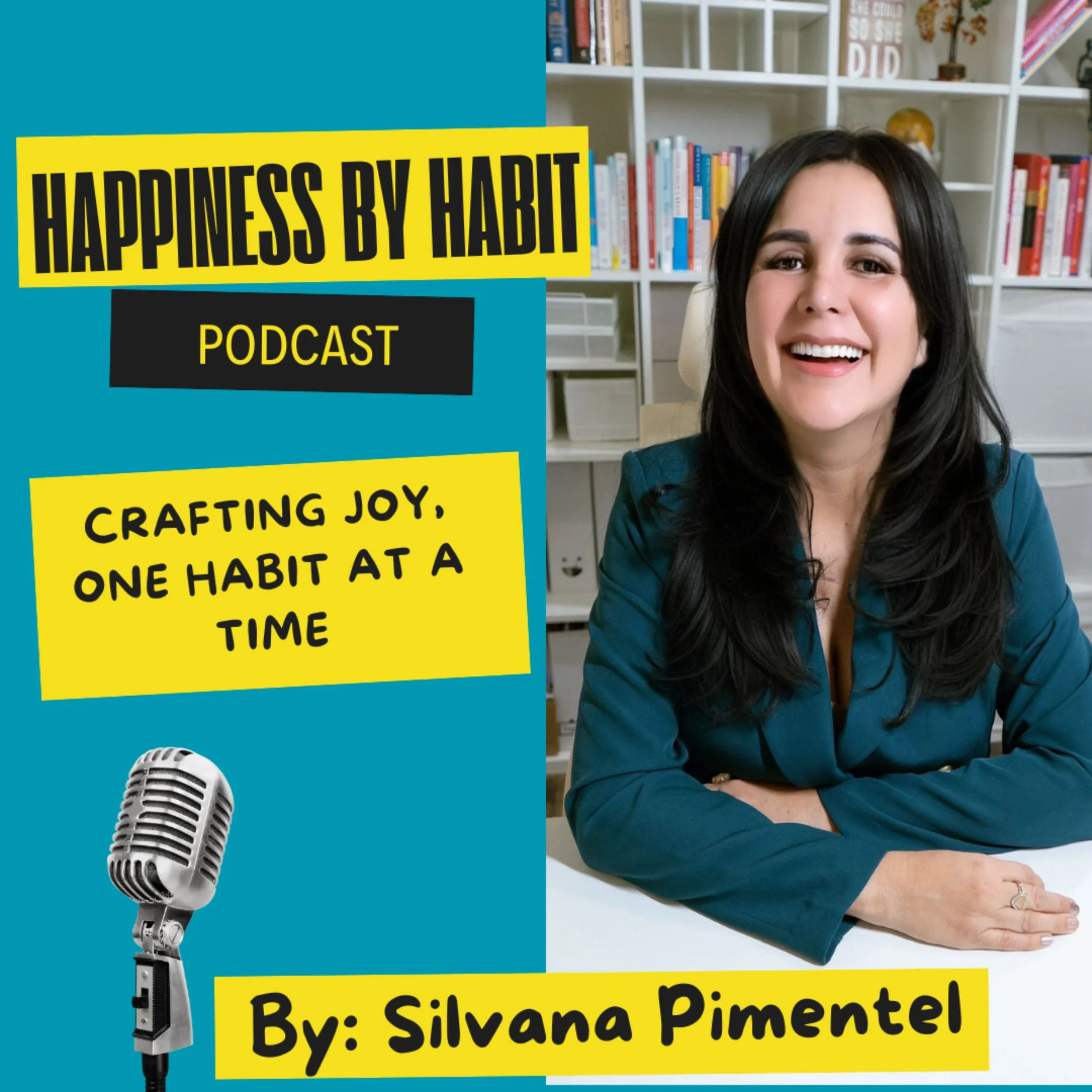Mental Health for Parents: How to Find Balance
How to Find Balance As a Parent
Parenting today can feel like an endless balancing act—juggling careers, household responsibilities, finances, and the emotional needs of children.
The pressure to “do it all” leaves many parents exhausted and disconnected from themselves. It’s easy to feel lost in the chaos, but Licensed Marriage and Family Therapist Reesa Morala, host of Real Family Eats, believes that balance begins with the parents themselves.
In her feature on the Happiness by Habit podcast with host Silvana Pimentel, Reesa shares how parents can strengthen their relationships, protect their own identity, and cultivate habits that promote family wellness. Her message is simple but powerful: when parents invest in their own well-being, they’re not just helping themselves—they’re creating a stronger foundation for their children and reshaping the family dynamic for the better.
Why This Conversation Matters
Culturally, parents are often taught that self-care is selfish or that focusing on their partnership takes something away from their children. Reesa challenges this belief, reframing wellness and relational health as acts of love for the entire family.
Children don’t just learn from what their parents say—they absorb what they see. When kids witness parents who are connected, regulated, and emotionally present, they internalize that stability. But when parents are overwhelmed, burnt out, or disconnected, children sense the tension and insecurity that follows.
Reesa highlights that balance isn’t about achieving perfection or splitting time evenly among competing demands. It’s about making intentional choices that align with values, allow for rest, and create consistent connection within the family system.
Who You Are Beyond Parenting
One of the biggest challenges parents face is holding onto their sense of identity outside of parenthood. Too often, the roles of caregiver, provider, or partner take precedence, leaving little space for personal passions, friendships, or self-expression.
Reesa stresses that nurturing who you are beyond parenting is not a luxury—it is essential for resilience. A parent who feels grounded in their own identity brings more energy, creativity, and joy into their family life. Whether it’s pursuing a hobby, dedicating time for friendships, or simply taking a quiet moment to recharge, these practices protect the individual within the parent.
Nurturing Your Partnership
Romantic relationships often get pushed to the background once children enter the picture. Yet Reesa reminds us that a healthy partnership is the anchor of the family system. When parents are connected, kids experience a sense of safety and stability that can’t be replicated elsewhere.
Small acts of connection—a quick check-in, a shared laugh, or even just ten minutes of undistracted conversation—help prevent resentment and disconnection. By prioritizing each other, partners strengthen the entire family.
Prioritizing Mental Wellness
Mental health is another critical pillar of balance. Parenting can bring joy, but it can also stir up stress, old wounds, and emotional strain. Reesa encourages parents to normalize caring for their mental health, whether through therapy, journaling, mindfulness practices, or supportive communities.
When parents invest in their emotional well-being, they expand their capacity for patience, compassion, and presence. Far from being selfish, this is one of the most generous things they can do for their children.
Balancing Finances with Values
Another area where families often struggle is financial stress. Reesa points out that financial wellness is part of family wellness. It’s not just about budgets—it’s about aligning money decisions with family values. When parents gain clarity about what matters most, financial choices become less overwhelming and more intentional. This reduces tension and creates a sense of security for the whole family.
Choosing Intentional Habits
Finally, Reesa underscores the importance of daily habits. Balance is not created in one sweeping gesture—it’s built in small, intentional actions. A moment of gratitude, mindful communication during conflict, or a brief family ritual can shift the tone of an entire day. Over time, these habits compound into lasting change, supporting both the individual and the family as a whole.
Key Lessons for Parents
Protect Your Identity: Nurture yourself outside of parenting to stay grounded.
Nurture Your Partnership: A healthy romantic relationship anchors family stability.
Prioritize Mental Wellness: Emotional health expands your capacity to parent well.
Balance Finances with Values: Money choices aligned with values reduce stress.
Choose Intentional Habits: Small daily practices create meaningful, lasting change.
A Message of Hope
This conversation is a powerful reminder that thriving as a parent doesn’t come from perfection or constant sacrifice—it comes from balance. By investing in their own well-being and partnership, parents create a ripple effect of stability, joy, and resilience that benefits children now and for generations to come.
If you’re in Murrieta, CA or anywhere across California, learn more about my parenting therapy intensives and parenting classes for more support.

